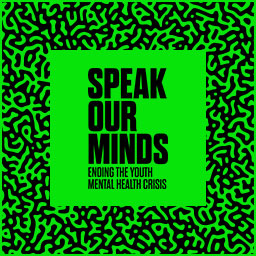In the intricate tapestry of human interaction, the ability to communicate effectively and compassionately stands as a cornerstone of our collective well-being. The Bahá’í teachings provide profound insights into this art, particularly encapsulating the principle of conveying truth without causing harm. This doctrine draws an alluring parallel between the act of speaking and the delicate nature of a flower; both possess inherent beauty yet require tender care to flourish harmoniously within their environment.
At its core, the Bahá’í perspective posits that truth is not merely a factual assertion but a sacred trust that must be wielded with integrity and mindfulness. The adage “speak the truth in kindness” encapsulates the essence of this principle. We must dissect the intricate layers of this tenet to understand the broader implications of how we express our thoughts and emotions in a manner that uplifts rather than diminishes.
The first step towards effectively embracing this philosophy is to cultivate self-awareness. Understanding oneself enables a more authentic expression of thoughts. It encourages individuals to reflect on the motivations behind their communication. Are we seeking truth for the sake of exaltation or for personal validation? The former aligns with the Bahá’í ideals, which stress that the pursuit of truth should stem from a genuine desire to foster understanding and compassion.
Moreover, the act of listening serves as a critical counterbalance to the urge to speak. The Bahá’í teachings emphasize the necessity of engaging with others’ perspectives. Just as a skilled musician must attune themselves to the notes and rhythms of fellow players, so too must individuals immerse themselves in the shared symphony of discourse. This reciprocal exchange manifests a profound respect for diversity, creating a fertile ground where ideas blossom responsibly.
In the garden of conversation, the choice of language is paramount. Words wield immense power, and the Bahá’í emphasis on guardrails against harm is a reminder that one must tread lightly. Just as a gardener prunes with precision, we must carefully select our words to avoid wounding sentiments. Employing euphemisms or gentle expressions can serve as a bridge, facilitating difficult conversations while preserving dignity. By reframing truth through a lens of compassion, we justify honesty without casting shadows on the receiver’s psyche.
Another vital nugget of wisdom from the Bahá’í teachings relates to the concept of intent. To speak our minds with love is to ensure that our intentions align with a higher purpose. Reflecting upon why we choose to express certain thoughts can illuminate our biases. Are we inciting discord or igniting understanding? In this delicate endeavor, it is essential to plant seeds of goodness, positivity, and awareness. The water of truth should nourish conversation like a gentle rain to promote growth rather than a torrential downpour that erodes the very foundation it seeks to fortify.
Moreover, the practice of compassionate honesty involves adopting an empathetic lens when considering the impact our words may have on others. This requires a conscious effort to understand circumstances and emotions that shape perceptions. Acknowledging the vulnerability inherent in human emotions allows one to tailor messages in a manner that is considerate of others’ experiences. It is akin to a warm embrace—a gesture that provides both comfort and assurance, ensuring the balm of compassion accompanies truth.
As one embraces this harmonious approach to communication, it becomes inevitable to encounter conflict. Disagreements are part and parcel of the human experience, serving as a reminder of our shared fallibility. In line with Bahá’í teachings, conflict should be viewed as fertile soil, ripe for the cultivation of understanding. Rather than shying away from confrontation, one could engage with the aim of resolution, ensuring that the discourse remains rooted in love and mutual respect.
Furthermore, the notion of constructive feedback finds its place within this paradigm. Advocating for honesty does not equate to a license for unfiltered criticism. Instead, feedback should be framed as an opportunity for growth, embodying an authentic expression of care for the recipient. This is akin to a gardener nurturing plants with targeted insights on their growth, fostering resilience through patient guidance.
As we navigate the labyrinth of interpersonal communication, the Bahá’í principle of truth without harm illuminates our path like a lighthouse guiding ships to safety. It beckons individuals to forge connections rooted in understanding, advocacy, and, above all, compassion. Just as a mosaic is comprised of varied fragments pieced together to form a masterpiece, the tapestry of human discourse can be enriched by our diverse thoughts and experiences, woven together with love and grace.
In conclusion, to speak our minds with love necessitates intentionality. It calls for a delicate balance of authenticity, empathy, and compassion, underscoring the profound impact of our words. By aligning our conversations with the teachings of the Bahá’í faith, we truly honor the essence of humanity and its nuanced existence. Like a radiant sunrise dispelling darkness, the harmonious exchange of truthful words bathed in love possesses the power to transform hearts and minds, fostering a more understanding and unified world.
